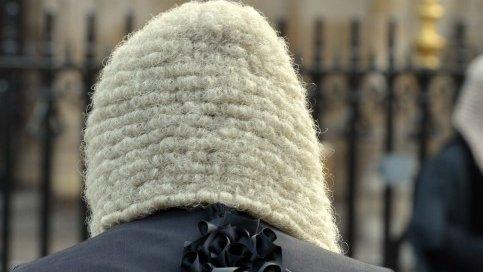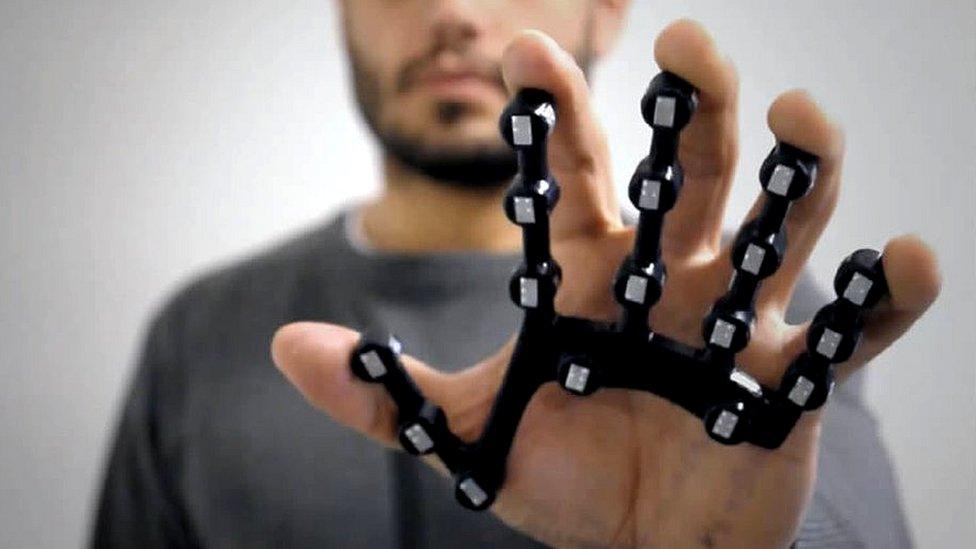Woman sells belongings to help brain-trauma husband communicate
- Published
Woman sells belongings to help brain-trauma husband communicate
A woman is crowdfunding and selling her belongings to pay for equipment to help her disabled husband communicate.
Nigel Bassett is unable to move or speak following a near fatal road crash in Cornwall three years ago that left him with a traumatic brain injury.
His wife Wendy Bassett said he was able to communicate with her by blinking, but it was not widely considered to be a reliable form of expression.
Unlike eye-gaze technology, she said, that could give him some independence.

Nigel Bassett cannot speak or smile and has restricted movement
The computer works by tracking Mr Bassett's eye movements, which enables him to select phrases, words and programs from a screen.
Gaining access to the technology would also mean Mr Bassett could communicate directly with doctors and specialists rather than via a third party as he currently does.
"Because Nigel uses his eyes for blinking, in a court of law or in the medical profession it's not considered a reliable means of communication, because we all blink all the time," Mrs Bassett said.
"When I ask Nigel to blink, and I'm not happy that it's a clear blink, I ask him to slow down and he does and he understands what I'm asking and he'll blink more clearly but it's still not accepted as a reliable means of communication."
'Life more important'
Mrs Bassett has set up a crowdfunding campaign to help buy the specialist technology from a Swedish company.
The computer costs almost £10,000 so she is also selling the couple's non-essential belongings to help fund the purchase.
So far the campaign has raised almost a third of its target.
"Neither of us are materialistic...we don't put value in things," she said.
"You think about what's important in this life, is a TV really important? His life is more important than things."
- Published10 March 2017

- Published29 January 2016
